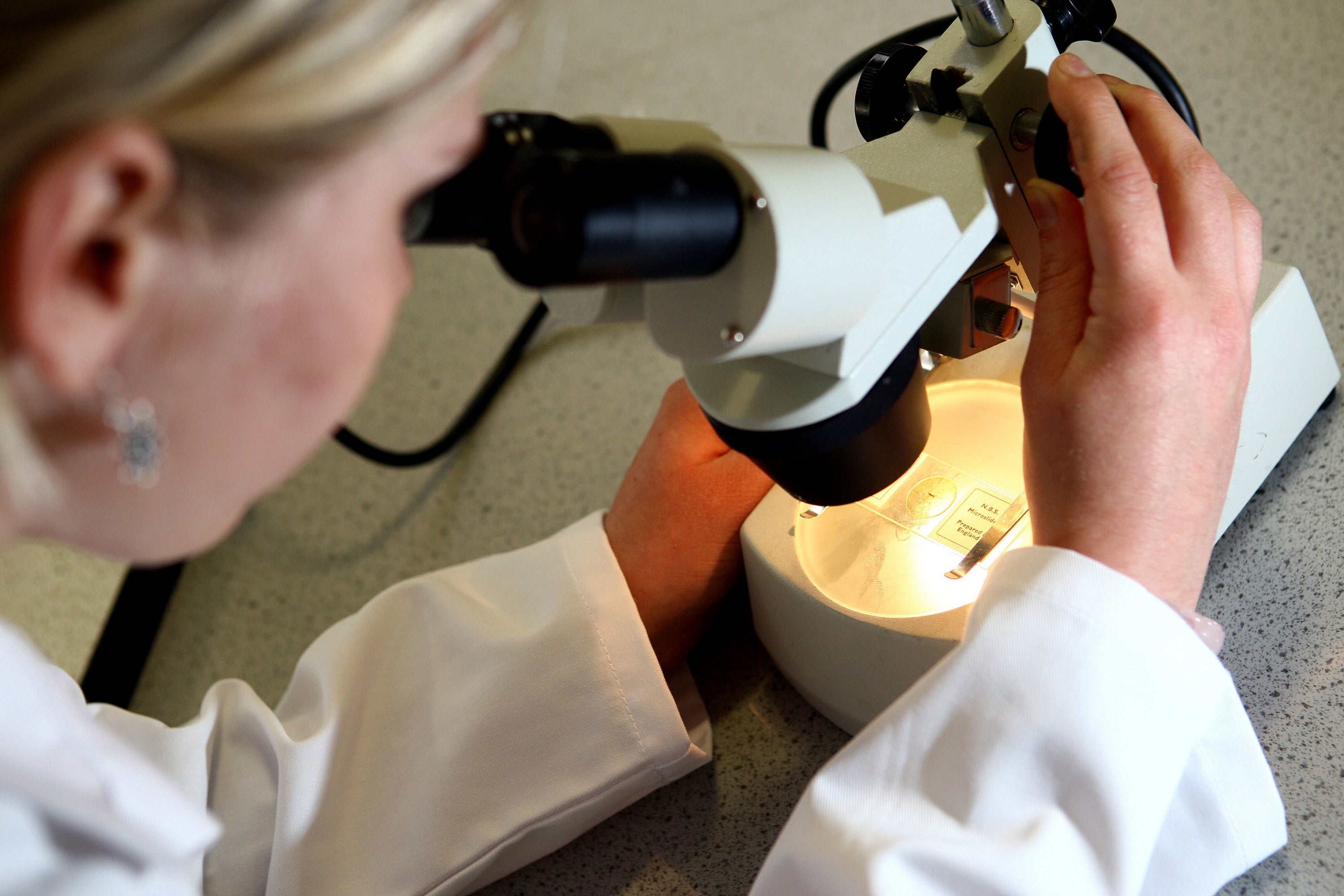Common prostate cancer test failing to diagnose most aggressive cancers, study finds
Prostate cancer is the second biggest cancer killer of men in the UK, causing 12,000 deaths a year

A widely used test to detect prostate cancer has a small impact on reducing deaths and misses early detection of some aggressive cancers, new research has found.
More than 400,000 men aged between 50 and 69 were involved in the largest study of its kind carried out by researchers from the universities of Bristol, Oxford and Cambridge.
The trial tested the effect of the Prostate-Specific Antigen (PSA) blood test, which is commonly used to decide when to send patient with urinary symptoms for further checks.
Half of the men who took part in the trial eceived a single invitation for a PSA test.
After following up for 15 years, there was a small difference in the number of men who died from prostate cancer between the two groups.
Nearly seven men out of every 1,000 in the group invited for screening had died from prostate cancer, compared to nearly eight men out of every 1,000 in the group who hadn’t been invited for screening.
The trial also showed that an estimated one in six cancers found by the single PSA screening were overdiagnosed, according to the research published in the Journal of the American Medical Association.
Cancer Research UK warned that overdiagnosis of prostate cancer is the main issue with PSA testing for early detection. It can result in the unnecessary treatment of cancers that would not have caused any harm in someone’s lifetime.
Overdiagnosis can also have a negative psychological impact, and treatment of prostate cancer may cause physical side effects including the possibility of infection following a biopsy, erectile dysfunction, and bladder and bowel problems, the charity added.
Most urinary symptoms are caused by a non-cancerous enlargement of the prostate.
Prostate cancer is the second biggest cancer killer of men in the UK, causing 12,000 deaths a year and there is currently no national screening programme for the disease.
Previous research has shown the PSA test is inaccurate - it increases detection of low-risk prostate cancers and misses some high-risk ones.
Professor Richard Martin, lead author and Cancer Research UK scientist at the University of Bristol, said: “Our studies have been measuring the effectiveness of the PSA test with hundreds of thousands of men for 15 years. The key takeaway is that the small reduction in prostate cancer deaths by using the test to screen healthy men does not outweigh the potential harms.
“This results in some men going on to have invasive treatment that they don’t need, many years earlier than without screening, and the test is also failing to spot some cancers that do need to be treated. We need to find better ways to spot aggressive prostate cancers, so we can treat them early.”
Naser Turabi, director of evidence and implementation at Cancer Research UK, said: “Prostate cancer remains the second most common cause of cancer death in men in the UK. Despite breakthroughs in treating the disease, there’s more we can do.
“The evidence shows that using a single invitation for a PSA test for a prostate cancer screening programme is likely to do more harm than good for men.
“We are funding research to help us find ways of diagnosing the disease early to reduce mortality, and we have trials taking place to find the best treatment for men with prostate cancer. Our search is not over – we're determined to find ways to accurately detect aggressive prostate cancer early and identify those at highest risk.”
Join our commenting forum
Join thought-provoking conversations, follow other Independent readers and see their replies
Comments
Bookmark popover
Removed from bookmarks